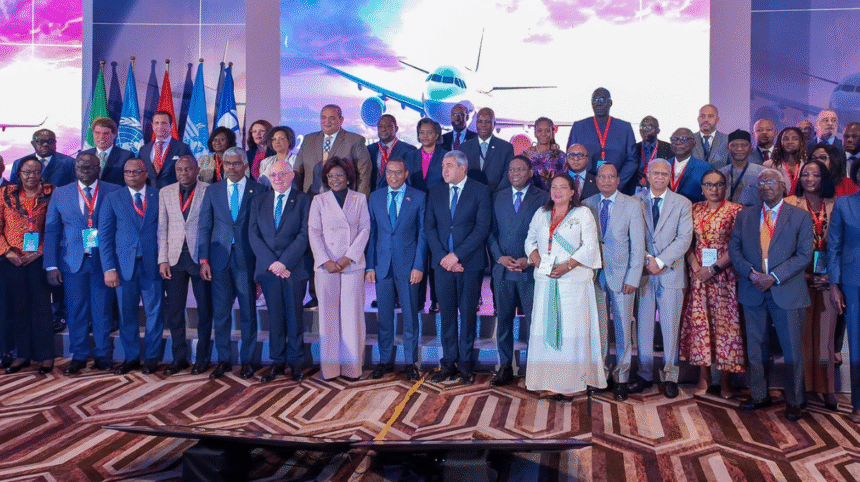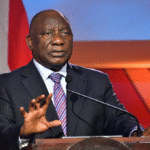As African nations look inward to strengthen trade, mobility, and shared prosperity, the message from Luanda is clear: now is the time to remove the borders that hold the continent back.
The Second UN Tourism and ICAO Ministerial Conference on Tourism and Air Transport in Africa, held in Luanda, Angola, concluded with a unified call to action. More than 300 high-level delegates and ministers agreed that Africa’s future hinges on greater connectivity, policy reform, and intra-continental travel.
The three-day conference, jointly hosted by UN Tourism, the International Civil Aviation Organisation (ICAO), and the Government of Angola, took place under the theme “Accelerating Synergies for Resilient and Sustainable Growth”. At the heart of the discussions was a shared frustration with the current state of African travel: fragmented, expensive, and riddled with bureaucratic obstacles.
Among the voices pushing for change is Ghanaian YouTuber Wode Maya, who has long documented his efforts to travel across the continent. His experiences reflect a broader reality: Africans face significant hurdles when trying to visit neighbouring countries. From complicated visa requirements and costly flights to currency exchange challenges and administrative red tape, the lack of travel freedom is proving costly, not only to individuals but to Africa’s growth as a whole.
“This is detrimental to our development,” Maya said in a recent video. “If Africa wants to trade and connect, we need to open our borders, not just in words, but in action.”
Several African countries have begun to respond. With the African Continental Free Trade Area (AfCFTA) and the Single African Air Transport Market (SAATM) gaining traction, the push to boost internal trade and travel has never been stronger. However, implementation remains patchy and momentum needs to be accelerated.
In his opening remarks, UN Tourism Secretary-General Zurab Pololikashvili urged African governments to act boldly. “Tourism and air transport are not just engines of growth, they are pathways to empowerment, opportunity, and transformation,” he said. “Through strategic leadership and innovation, Africa’s potential can become its reality.”
Angola’s Minister of Tourism, H.E. Daniel Marcio, highlighted the importance of tourism in national development strategies.
“Angola is proud to host such a landmark event. Tourism is a key pillar of our national strategy for inclusive development, job creation, and cultural promotion.”
Meanwhile, Transport Minister H.E. Ricardo de Abreu stressed the need to modernise infrastructure and make transport accessible.
“Connectivity within Africa is essential to realising the continent’s economic potential. We must build air systems that are not only modern and efficient but also responsive to the needs of our people.”
ICAO Council President Salvatore Sciacchitano echoed this sentiment, saying, “Tourism and aviation must grow hand in hand. Through shared vision and policy coherence, we can ensure no country is left behind.”
The conference featured technical sessions on digital innovation, investment models, and regional integration. There was broad agreement that aviation and tourism policies must be aligned, and that real progress depends on political will, public-private partnerships, and smart financing.
The Luanda Conference placed particular emphasis on the need to:
- Modernise aviation and tourism infrastructure with blended investment from the public and private sectors.
- Simplify visa regimes, including longer-validity multi-entry visas and fast-track procedures.
- Enhance intra-African tourism through joint destination marketing and more affordable regional travel.
- Support skills development, especially for women and youth, to drive job creation in both sectors.
A standout moment came with the adoption of the Luanda Ministerial Statement, a formal commitment to create a more integrated, seamless travel environment across Africa.
The call to action comes amid promising signs of recovery. In 2024, Africa recorded 74 million international tourist arrivals, a 7% increase over pre-pandemic levels and a 12% rise from 2023. This rebound highlights the continent’s growing appeal, but also underscores the urgent need to make travel easier and more affordable for Africans themselves.
Africa has the people, the places, and the potential. What it needs now is the political courage to break down the borders between its nations.
As one TikTok commenter summed it up after watching Wode Maya’s travel frustrations:
“It’s easier for Europeans to move through Africa than for Africans. That needs to change.”
The momentum is building. Whether governments rise to meet it remains the question.










